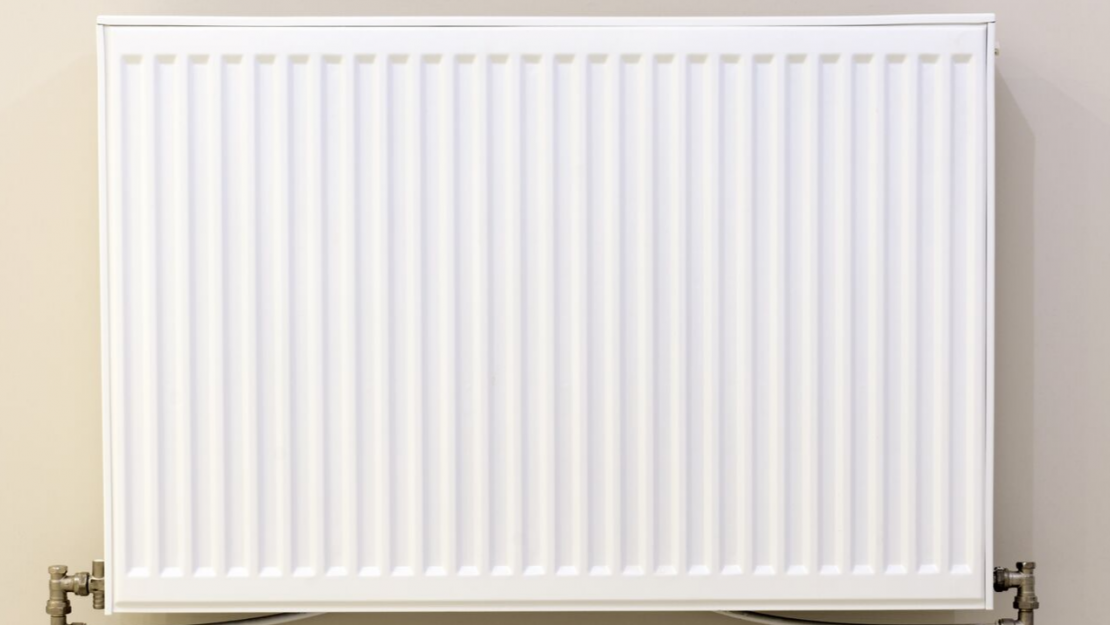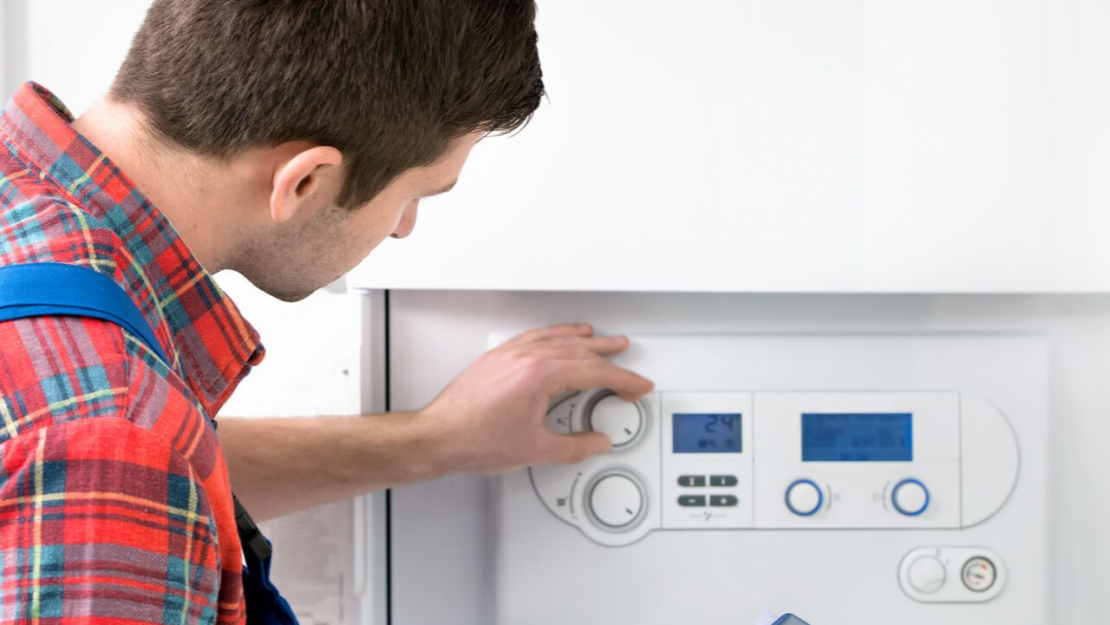What Is A Combi Boiler And How Is It Different?

A combination boiler (almost always called a “combi boiler”) is both your central heating boiler and water heater in a single, neat unit. One of their real benefits is that they heat the water directly from the mains, rather than by heating a tank of water.
Like all modern boilers, combis are condensing boilers. These take the waste gases produced by the heating process and use them to generate more heat. This is far more efficient than the old-style boilers which simply let escaped energy vanish into the ether – more CO2 in the air, and less money in your pocket.
Combi boilers are compact, wall-mounted units that take up very little space. As there’s no need for a water tank or hot water cylinder, the combi boiler is ideal for a smaller property or flat.
By contrast, a regular boiler heats water from a cold-water tank, which is then stored in an insulated cylinder, ready for when you need hot water. The heating and hot water are often on the same system with older boilers, meaning that if you want one, you have to have the other.
How Does A Combi Boiler Work?
Combination boilers have two functions: to heat water, and to warm your central heating radiators. These two functions work from separate heat exchangers, which are housed in the same compact box.
The primary heat exchanger heats the water that goes into the central heating pipes and heats the radiators. This hot water is recycled around the system and kept at a warm temperature.
The boiler works in tandem with your thermostats. A modern combi boiler will have a digital, programmable controller for the central heating. This communicates with a wall-mounted zone thermostat, which in turn signals to the thermostats on the individual radiators, telling them when to switch on and off.
The combi boiler doesn’t heat water from a tank like conventional, older boilers do. Instead, it draws water directly from the mains, which is passed through the secondary heat exchanger. This gives you instant, mains-pressure hot water. The boiler is basically always on standby, waiting for you to turn on the tap. Again, you can set the water temperature using a thermostat (usually to around 60oC, but we recommend dropping this to a cooler 49oC if you have young children).
The combi can’t power both the central heating and the hot water at the same time – you don’t want that scuzzy, recycled radiator water getting into your household taps. So, a valve shuts down the pipe to the radiators temporarily when you run the hot tap. You’re unlikely to notice any change to the ambient temperature, although if you’re close to the boiler, you may hear it click as the valve switches over.
What Are The Main Benefits Of A Combi Boiler?

There are plenty of good reasons to replace your old system with a new combi boiler.
Most importantly for many of Duffy’s customers, a combination boiler is more efficient than an old, non-condensing boiler. A typical older boiler is just 60-70% efficient, compared with a new combi boiler, which is 90%+ efficient. That’s a huge difference.
This means that a new combi boiler is a far cleaner option. Upgrading your boiler is one of the best ways to reduce your household’s carbon footprint: just think, your old boiler could be wasting up to 40% of the energy it produces.
One of the ways older boilers waste energy is by having two simple states: on or off. By separating the water and radiators, combi boilers allow you to heat the water without having to fire up the central heating at the same time.
Modern combi boilers come with digital controls that let you set up distinct heating zones in the house. Separate parts of your home – for example, the living and the bedroom areas – can have heat at different times and at different temperatures.
They’re also lower maintenance. The fewer pipes, the fewer problems; and a combi boiler doesn’t have as much pipework as a regular system. There’s less chance of leaks or of pipes freezing in the chilly Dublin winter.
And again, there’s that space saving benefit. You don’t need a loft for your tank or an airing cupboard for a hot water cylinder. We’ll simply wall mount your boiler, usually in the kitchen, utility room or former airing cupboard.
Will I Save Money If I Switch To A Combi Boiler?

That move from a 60-70% efficient boiler to a 90%+ efficient boiler will definitely save you money - roughly a third of your gas bill. Based on the average Irish household’s annual gas bill of €727 (according to Bord Gais), this could be as much as €200 every year.
You can also make other cost savings by switching to a combi boiler. For example, you’ll never need to guess how much hot water you’ll need, as the combi boiler heats only what you use. Multi-zone heating makes it easier not to heat little-used spaces, such as spare bedrooms. If you have an app-controlled option (more about this in a minute), you can be really responsive to your central heating needs – pausing the heating if you’re late home in the evening, for example.
Because the heating and hot water are separate, you won’t need to fire up the whole system if you simply want a nice, warm bath. This means that your summer gas bills should be happily low, as all you’ll pay for (apart from maybe the cooker) is the hot water.
Can I Use A Heating Control App?
Many new models of combi boiler, such as the Ideal Logic Combi IE that we install, are compatible with app-based controls. You can ask your boiler to fire up the radiators in time for you to arrive home to a warm house. There’s no need to use it for hot water, as that will be heated on demand anyway.
Is My Home Suitable For A Combi Boiler?
Many new builds come with combi boilers. They’re compact and energy efficient, and super-easy to use. If you’re thinking about upgrading to a combi boiler, there are a few things to think about.
Short of space? A combi boiler could be the perfect solution, as you won’t need a tank and cylinder. The unit can even fit inside a kitchen cupboard. You’ll simply need to make sure you have the space to safely mount the combi unit on a weight-bearing wall.
Fuelling the boiler is also straightforward. In the Dublin area, most homes have access to mains gas, so it’s a simple job to connect your new combi boiler to the gas supply. If you live in a more remote location, combi boilers will work with LPG or oil, which will need regularly replacing (although not as often as they would with an inefficient, old-style boiler).
Much as we love the combi boiler, there are a couple of instances where they’re not necessarily the best heating option.
If you have a large family, and are lucky enough to have multiple bathrooms, you’ll experience a decline in water pressure if everyone wants their morning shower at the same time. For this reason, we don’t recommend combi boilers for larger households.
Do you have an old radiator system? If you do, and you’re not ready to upgrade it, it may not be possible to install a combi boiler. This is because an old system can’t always cope with the high water pressure delivered by a combi boiler. If you live in the Dublin area, we can take a look at your current central heating system, and discuss your options with you.
What Is The Installation Process?

It’s actually a quick and straightforward job to install a combi boiler, and at Duffy, we’ve installed hundreds across Dublin over the last few years.
There’s no big, separate tank to install, and therefore, there’s a lot less pipework. Because combi-heated hot water is mains pressured, you won’t need to have a separate pump to improve the flow rate to your shower.
The combi boiler’s neat, slimline design means that you won’t have to undertake any structural work to have a new boiler fitted (unless you include fitting a new kitchen cupboard), saving time, effort and money.
If you want to know more about the combi boiler installation process and costs, and live in the Dublin area, please drop us a line at Duffy Heating. We’ll explain the benefits and installation procedure in greater detail; and we can also come out to have a look at your home and current system.
Contact Us At Duffy Heating
If you live in or around Dublin and are interested in having a new combi boiler installed, get in touch with us at Duffy Heating for no-obligation advice and a quote. We’re an RGII registered gas installer and an OFTEC registered oil installer. We can also service your combi boiler to keep it running perfectly.
Published: 26 September 2019